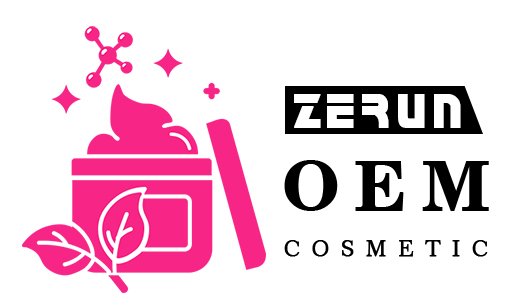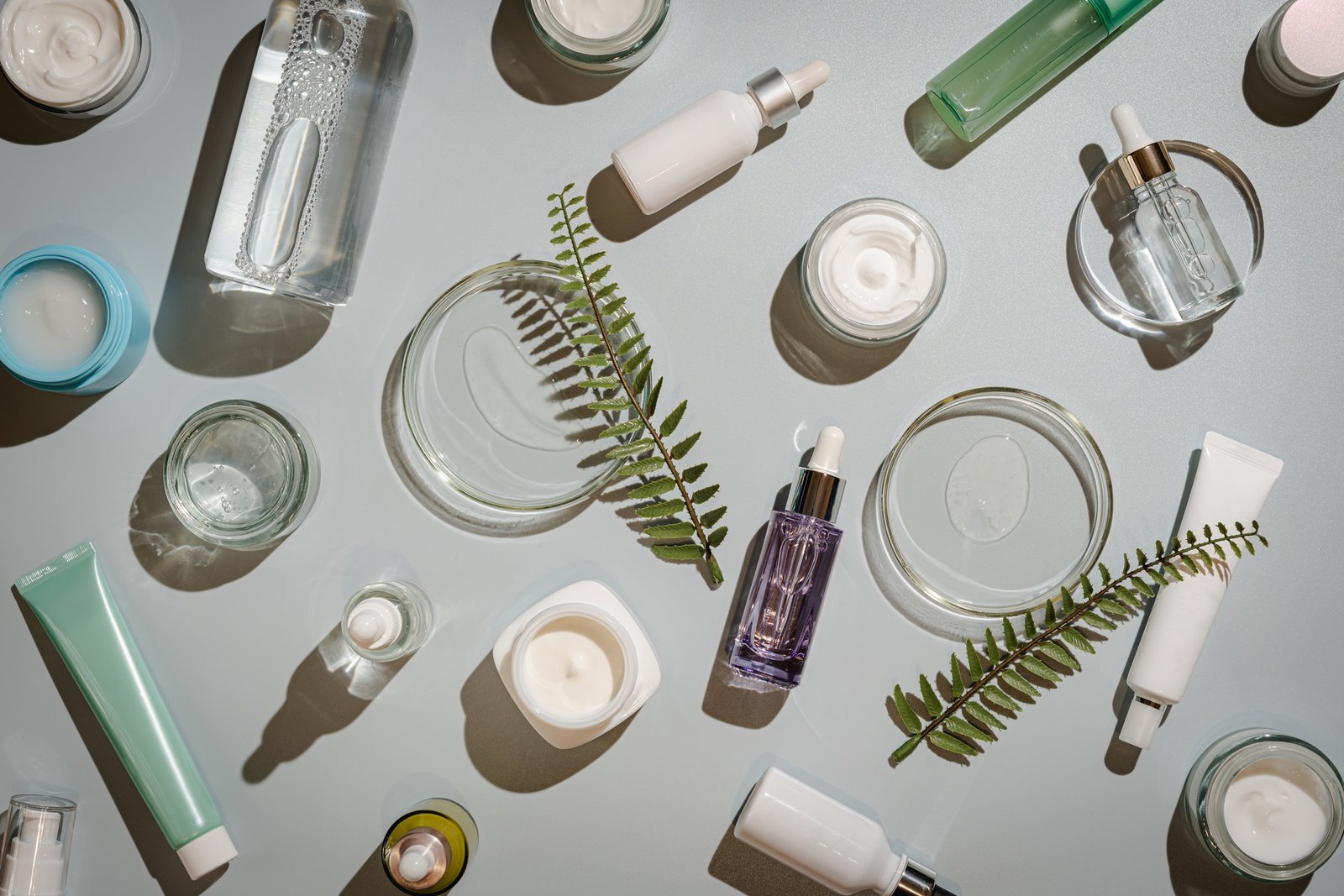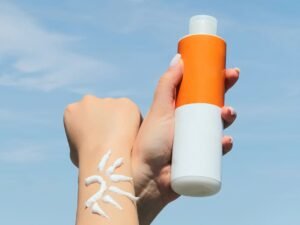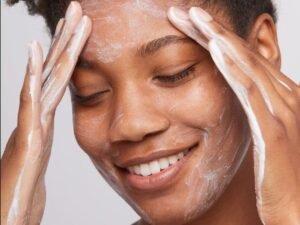Serums have become an essential part of many skincare routines, but with so many options available, how do you know which one is right for you? Are serums truly effective in addressing specific skin concerns like wrinkles, dark spots, or dryness? Understanding what makes a good serum can help you choose the best product for your skincare goals.
A good serum targets specific skin concerns with a high concentration of active ingredients, offering faster and more noticeable results. Choosing the right serum depends on your skin type and issues like aging, acne, or pigmentation. This guide covers everything from ingredients to application tips to help you find the perfect serum for your needs.
Serums are often touted as miracle workers in the skincare world, promising to address everything from wrinkles and pigmentation to hydration and acne. But what makes a serum truly effective? With so many formulations available, it can be overwhelming to know which one will deliver the results you’re looking for. Whether you’re trying to reduce dark spots, fight aging, or simply hydrate, this guide will take you through the key elements of a good serum, helping you understand how they work, what to look for in ingredients, and how to incorporate them into your skincare routine.
What Is a Serum and How Does It Differ from Other Skincare Products?
Serums are concentrated formulas designed to penetrate deep into the skin and target specific concerns. Unlike moisturizers or toners, they provide higher concentrations of active ingredients, making them more effective for issues like fine lines, acne, and hyperpigmentation.
- Concentration of Ingredients: One of the key differences between serums and other skincare products is the concentration of active ingredients. While moisturizers typically contain a mix of humectants, emollients, and oils to hydrate and protect, serums are designed with a higher concentration of active ingredients to penetrate the skin and provide targeted treatment. This makes serums ideal for addressing specific skin issues like aging, acne, or discoloration.
- Penetration and Effectiveness: Serums are often more effective than other skincare products because of their ability to penetrate deeper into the skin. The smaller molecules in serums allow them to reach the dermis, the layer beneath the epidermis, where they can stimulate collagen production, hydrate deeper layers, or reduce inflammation. This makes them an essential part of any anti-aging or skin treatment routine.
- Usage in Skincare Routine: Serums are usually applied after toning and before moisturizing in your skincare routine. Because they contain concentrated ingredients, a little goes a long way. Depending on your skin’s needs, you may want to layer multiple serums, but it’s important to let each one fully absorb before applying the next.
What Are the Key Ingredients in a Good Serum?
Key ingredients in effective serums include hyaluronic acid for hydration, retinol for anti-aging, and vitamin C for brightening. The best serums combine these actives in the right proportions to target specific skin concerns while maintaining a balanced formula.
- Hyaluronic Acid: This powerful humectant attracts moisture to the skin, making it perfect for dry skin or skin in need of extra hydration. Hyaluronic acid helps plump the skin, reduce fine lines, and maintain overall skin health. In fact, hyaluronic acid is known to hold up to 1,000 times its weight in water, making it a go-to ingredient for anyone with dry or dehydrated skin.
- Retinol: A form of vitamin A, retinol is one of the most effective ingredients for reducing signs of aging. It boosts collagen production, promotes cell turnover, and helps improve skin texture. While it’s great for fighting wrinkles and fine lines, it can be irritating for sensitive skin, so it’s important to start slowly and use sunscreen during the day.
- Vitamin C: Known for its brightening and anti-pigmentation properties, vitamin C is a powerful antioxidant that helps even skin tone and protect against sun damage. It also has skin-repairing benefits, helping to fade dark spots, hyperpigmentation, and sun spots. For best results, look for a stable form of vitamin C, such as ascorbic acid or sodium ascorbyl phosphate.
- Peptides and Growth Factors: Peptides help stimulate collagen production and improve skin elasticity, which makes them essential in anti-aging serums. Growth factors, like epidermal growth factor (EGF), stimulate cell turnover and repair, enhancing the overall texture and strength of the skin.
How to Choose the Right Serum for Your Skin Type?
Choosing the right serum depends on your skin type and specific concerns. For dry skin, go for hydrating serums with hyaluronic acid. For oily skin, look for lightweight, oil-free serums. Adjust your serum choice based on skin sensitivity and needs.
- For Dry Skin: If you have dry skin, you should look for a serum with hydrating ingredients like hyaluronic acid, glycerin, and ceramides. These ingredients draw moisture into the skin and help retain it. A rich serum can also provide much-needed nourishment for dry skin without clogging pores.
- For Oily Skin: If you have oily skin, opt for serums that are lightweight and non-comedogenic (won’t clog pores). Look for serums that contain salicylic acid or niacinamide to help control oil production and prevent acne. Gel-based serums or oil-free formulas will work best.
- For Sensitive Skin: Sensitive skin requires a gentle approach, so avoid serums with potent actives like retinol or high concentrations of vitamin C. Instead, opt for calming ingredients like chamomile, aloe vera, and glycerin, which help soothe and hydrate without irritation.
- For Aging Skin: For anti-aging benefits, look for serums that contain retinol, peptides, or antioxidants like vitamin C. These ingredients will help stimulate collagen production, reduce fine lines, and improve skin texture. Incorporating serums with these actives can make a significant impact over time.
Are There Different Types of Serums for Different Skin Concerns?
Serums can target a variety of concerns like acne, aging, hydration, and pigmentation. Anti-aging serums with retinol, brightening serums with vitamin C, and acne-fighting serums with salicylic acid are some of the most popular formulations to consider.
- Hydration Serums: For dry or dehydrated skin, hydration serums with hyaluronic acid, glycerin, or aloe vera are perfect for replenishing moisture levels and plumping the skin. These serums work well for people who need deep hydration without heaviness.
- Anti-Aging Serums: Serums designed for anti-aging often contain ingredients like retinol, peptides, and vitamin C. These ingredients work together to increase collagen production, smooth out wrinkles, and rejuvenate the skin. Look for anti-aging serums that also include antioxidants to fight environmental damage.
- Brightening Serums: For skin with pigmentation issues, dark spots, or uneven skin tone, brightening serums with ingredients like vitamin C, niacinamide, and alpha arbutin can be effective. These ingredients target hyperpigmentation and brighten the skin, helping to even out skin tone.
- Acne Serums: Acne serums are typically formulated with ingredients like salicylic acid, benzoyl peroxide, or tea tree oil. These ingredients help to unclog pores, reduce inflammation, and kill bacteria that cause acne. Look for a serum with a lightweight, non-greasy formula if you have oily or acne-prone skin.
How to Apply a Serum for Maximum Effectiveness?
To apply a serum effectively, use a clean face and apply a few drops onto your skin after toning. Gently pat or massage the serum into your skin and allow it to absorb fully before applying other products like moisturizers.
- Proper Application: Start with a cleansed and toned face. Apply a few drops of serum to your fingertips and gently pat it onto your face and neck. Avoid rubbing, as it can irritate the skin. Allow the serum to absorb fully before applying a moisturizer to seal in hydration.
- Layering Serums: If using multiple serums, apply them in order of consistency, starting with the thinnest (e.g., hydration serums) and ending with thicker serums like those with retinol or anti-aging ingredients. Wait for each layer to absorb before applying the next.
What Is the Best Time to Use a Serum in Your Skincare Routine?
Use hydrating serums in the morning, and consider applying anti-aging serums at night. Vitamin C serums work best during the day, while retinol-based serums are most effective when applied before bedtime to minimize sensitivity to the sun.
- Morning vs. Night: Use serums containing vitamin C, hyaluronic acid, or antioxidants in the morning to protect your skin from environmental damage. At night, apply serums with retinol or peptides, as they are more effective in the absence of sunlight.
- Sunscreen: Always apply sunscreen after using a vitamin C serum or any other serum that makes your skin more sensitive to the sun, such as those with retinol. Sunscreen will help protect your skin from UV damage and prevent further pigmentation or irritation. It’s an essential part of your morning routine.
How Long Does It Take to See Results from a Serum?
One of the most common questions when using serums is how long it will take to see visible improvements. Results vary based on your skin’s condition, the type of serum, and how consistent you are with its use.
Visible results from a serum typically take about 4-6 weeks of consistent use. Some ingredients, like vitamin C or hyaluronic acid, may provide faster results, while others, like retinol or peptides, may take longer to show significant improvement.
- Timeframe for Results: With consistent use, most people can expect to see visible results within 4-6 weeks. Hydrating serums often show faster results in terms of skin plumpness and smoothness, while anti-aging serums may take several months to show a reduction in wrinkles or fine lines.
- Factors Affecting Results: The effectiveness of a serum depends on several factors, including the active ingredients, your skin type, and environmental factors like diet and sun exposure. People with sensitive skin or those using strong actives like retinol may experience slower results due to the skin’s adjustment period.
- What to Expect: Depending on the serum’s purpose, you may notice different types of improvements. For brightening serums, it could be a more even skin tone, while anti-aging serums may result in smoother, firmer skin. Acne-fighting serums might take longer, as they need to control breakouts and reduce scarring over time.
How to Determine If a Serum is Good or Right for You?
Look for serums with proven ingredients backed by scientific research. Pay attention to product reviews, certifications, and ingredient transparency. The best serum for you will address your skin concerns and be free from harsh chemicals or irritating additives.
- Ingredient Transparency: A good serum should have a list of ingredients that are both effective and gentle. Avoid serums with unnecessary fillers, alcohols, or fragrances, which can irritate the skin. Look for products with a high concentration of active ingredients that are known for targeting specific concerns.
- Certifications and Reviews: Reputable serums often come with certifications such as cruelty-free, organic, or dermatologist-tested labels. These certifications ensure the serum meets specific safety standards. Additionally, checking customer reviews and expert opinions can help you make an informed decision about the effectiveness of the serum.
- Signs of a Good Serum: A good serum should absorb quickly, leaving your skin feeling smooth but not greasy. It should also be free of any irritation or redness after application. If the serum promises quick results, make sure to evaluate the ingredients carefully to avoid unrealistic claims.
Conclusion
Choosing the right serum can significantly enhance your skincare routine and address specific skin concerns more effectively than traditional creams or moisturizers. From understanding the active ingredients to identifying the best serum for your skin type, this guide has provided you with all the knowledge you need to make an informed decision. Whether you’re looking to reduce signs of aging, brighten dark spots, or boost hydration, there’s a serum out there that’s right for you.
If you’re interested in private label skincare or custom formulations, Zerun cosmetic factory is here to help. We offer high-quality, customizable serums tailored to your brand’s needs. Get in touch today to start creating your ideal serum products with our expert team! Let us help you create the perfect skincare solution for your customers.





